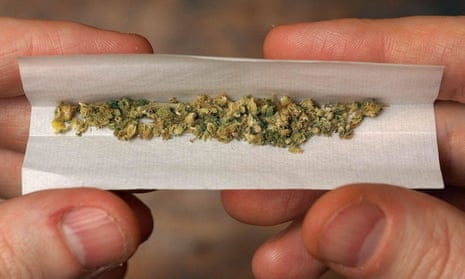Prisons should trial free cannabis schemes for drug-dependent inmates to ascertain whether it could reduce overdose deaths, bring down violence and help people overcome opioid addiction, a police and crime commissioner has said.
The North Wales PCC, Arfon Jones, said that if justice authorities were serious about reducing harms and violence in prisons, “they should be addressing the causes” such as the cheap synthetic cannabinoid spice that is rife and can be deadly, as opposed to cannabis.
Many prisoners receive heroin substitutes such as methadone and buprenorphine, while others are commonly prescribed strong analgesics such as pregabalin and gabapentinoids – all of which are addictive and potentially dangerous drugs. Meanwhile, illegal drugs are widespread.
“If they’re on opioids, why can’t they be prescribed cannabis?” said the former police officer, 66, who is not seeking re-election. “At the end of the day, opioids are a damn sight more dangerous than cannabis. It would be an improvement on the illegal spice smuggled in by corrupt prison officers too.”
More than 300 prison officers and outside staff have been dismissed or convicted for bringing prohibited items – which can include drugs, tobacco and mobile phones – into jails in England and Wales over the past five years, the Guardian revealed last month.
Recreational cannabis remains illegal but the plant has been legalised for medical use in the UK, though access to full extract oil through the NHS remains almost impossible due to resistance from the medical establishment.
Jones said a specific regime should be instituted to create a framework for cannabis trials at a number of prisons, including HMP Berwyn – near his home in Wrexham – where several staff have been punished for smuggling drugs, while there have also been recent deaths from spice.
“Let’s supply cannabis in controlled conditions and see if offences reduce,” he added, saying the idea was first floated in 2018 by the pharmacologist Dr Stephanie Sharp.
“The aim of the game is to make prisons safer. If they’re serious about reducing violence in prisons they should be addressing the causes and that’s psychoactive substances. Plus there’s a whole range of issues that cannabis would be geared to reduce the risk of.”
The number of recorded drug finds in prisons rose by 18% in 2019-20, to 21,575, with psychoactive substances fuelling the growth.
There were 88 drug-related deaths in prisons between 2008 and 2016, mostly from methadone, heroin and benzodiazepines, according to the latest data from the Office for National Statistics. However, spice deaths have increased sharply in recent years.
Across a number of US states where medical cannabis was legalised, opioid overdose deaths fell by 25%, research by Johns Hopkins University covering 1999 to 2014 suggests.
Another American study suggests patients using cannabis to control chronic pain massively reduced their use of opioids, with the herb reducing the physical and psychological symptoms of withdrawal.
A Prison Service spokesperson said: “We have a zero-tolerance approach to drugs and work closely with healthcare to support offenders through treatment and recovery.”
